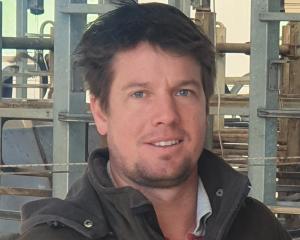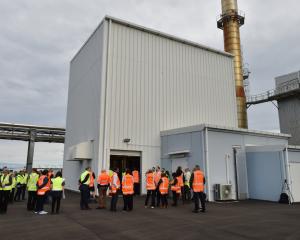Te Whatu Ora Health New Zealand has admitted sending more radiation therapists to the North Island than it initially claimed as it faces a major shortage of radiation oncologists at Dunedin Hospital.
HNZ Southern yesterday confirmed a total of six radiation therapists were sent to assist in other parts of the country, rather than the two it claimed earlier.
Last week HNZ Southern said two radiation therapists were sent to Wellington Regional Hospital to support the seven patients who were sent to Wellington between May and June.
A shortage of radiation oncologists at Dunedin Hospital caused the move while locums were sought at the hospital, which was struggling to fill three permanent fulltime positions.
Yesterday HNZ Southern confirmed what the Otago Daily Times was told by other sources; that a further two radiation therapists had also been sent to Palmerston North between June and August.

HNZ Southern interim hospital and specialist services leader Hamish Brown said yesterday that four radiation therapists had been sent to Wellington between May and June, rather than two.
"We have also received radiation oncologist resource from Auckland, Waikato, Wellington and Canterbury over this year to help support the work here," he said.
There were just three permanent radiation oncologists at the hospital, and another three fulltime equivalent positions were vacant.
HNZ Southern was "actively recruiting" while various locums provided support.
This included a fulltime international locum and three who were part-time, with one providing virtual consultations and two visiting Dunedin each month.
Apex union radiation therapist advocate Omar Hamed last week said this caused a bottleneck in seeing radiation therapists, as patients needed to see a radiation oncologist for their first specialist assessment before they could be treated.
HNZ Southern needed to fork out enough money to attract radiation oncologists to Dunedin, he said.
Association of Salaried Medical Specialists executive director Sarah Dalton said pay was not the only solution, but it had to be part of the solution.
More radiation oncologists needed to be trained, although this would take more than a decade.
"Right now ... we can work better to keep the radiation oncologists we have, and we can recruit radiation oncologists overseas."
ASMS was in negotiations with HNZ for the national collective agreement for senior doctors and dentists, and offers were not keeping up with inflation.
This was a pay cut in real terms, while staffing shortages meant more pressure on the job.
"When you only have 50 percent of the colleagues you need, workload stress pushes existing radiation oncologists to consider their options — work fewer hours to manage the personal pressure, or look for other work in another location."
Doctors had to protect themselves from burnout, but both these options created staff shortages that made the delay in patient care worse.
Southern’s part-time locums could be doctors looking to manage stress with lower hours, she said.
"Equally, locums visiting Dunedin could be taking capacity away from other parts of the country."
Locum pay rates had to be higher than the normal rate paid to permanently employed staff.
The rates to attract an international locum could be enormous, but there would be "very little incentive" for them to stay on permanently.
Potential overseas recruits would be asking around about the place they were considering going, and staff shortages and effective pay cuts were not an attractive prospect.
The country’s nearest neighbour, Australia, was vigorously trying to recruit doctors from New Zealand, and there was a global market for medical skills.
Advertisement













